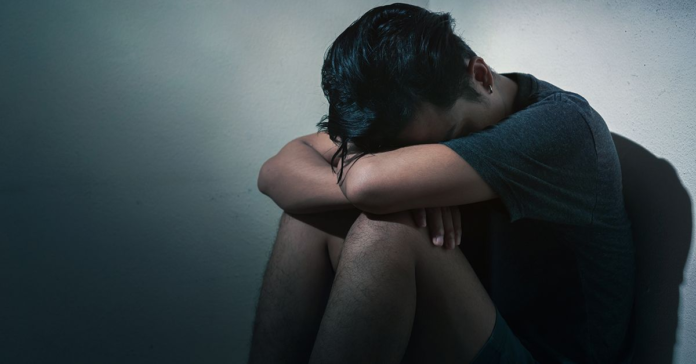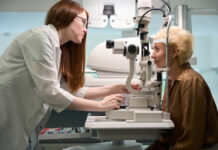Post-horrible pressure issue (PTSD) is a turmoil that creates in certain individuals who have encountered a shocking, terrifying, or hazardous occasion.
It is normal to feel apprehensive during and after an awful circumstance. Dread triggers many split-second changes in the body to help guard against threat or to maintain a strategic distance from it. This “battle or-flight” reaction is a common response intended to shield an individual from hurt. About everybody will encounter a scope of responses after injury, yet a great many people recuperate from initial side effects normally. The individuals who continue to encounter issues might be determined to have PTSD. Individuals who have PTSD may feel pushed or scared, in any event, when they are not at serious risk.
Signs and Symptoms
While most however not all damaged individuals experience transient side effects, the dominant part don’t create ongoing (incessant) PTSD. Not every person with PTSD has experienced a hazardous occasion. A few encounters, similar to the abrupt, startling passing of a friend or family member, can likewise cause PTSD. Side effects for the most part begin right on time, within 3 months of the awful incident, however at times they begin years a short time later. Side effects should last over a month and be sufficiently extreme to interfere with connections or work to be viewed as PTSD. The course of the disease changes. A few people recoup within a half year, while others have side effects that last any longer. In certain individuals, the condition gets ceaseless.
A specialist who has experience helping individuals with psychological maladjustments, for example, a good psychiatrist Dubai or the best psychologist in Dubai, can analyze PTSD.
To be determined to have PTSD, a grown-up must have the entirety of the following for at any rate multi month:
- At any rate one re-experiencing side effect
- At any rate one evasion manifestation
- At any rate two excitement and reactivity side effects
- At any rate two cognizance and mind-set manifestations
Re-experiencing indications include:
- Flashbacks—reliving the injury again and again, including physical side effects like a racing heart or sweating
- Awful dreams
- Frightening musings
Re-experiencing indications may mess up an individual’s ordinary routine. The manifestations can begin from the individual’s own contemplations and feelings. Words, items, or circumstances that are reminders of the occasion can likewise trigger re-experiencing manifestations.
Shirking indications include:
- Staying ceaselessly from spots, occasions, or articles that are reminders of the horrendous experience
- Avoiding contemplations or feelings identified with the horrendous accident
Things that remind an individual of the awful mishap can trigger shirking side effects. These side effects may make an individual change their own routine. For instance, after an awful fender bender, an individual who for the most part drives may abstain from driving or riding in a vehicle.
Excitement and reactivity indications include:
- Being effectively frightened
- Feeling tense or “anxious”
- Having trouble sleeping
- Having irate upheavals
Excitement indications are typically consistent, instead of being set off by things that remind one of the horrendous accidents. These indications can drive the individual feel pushed and crazy. They may make it difficult to do every day errands, for example, sleeping, eating, or concentrating.
Comprehension and temperament side effects include:
- Inconvenience remembering key highlights of the horrendous accident
- Negative contemplations about oneself or the world
- Misshaped feelings like blame or fault
- Loss of interest in charming exercises
Discernment and disposition side effects can begin or exacerbate after the awful accident, however are not because of injury or substance use. These side effects can cause the individual to feel estranged or disconnected from companions or relatives.
It is normal to have a portion of these side effects for half a month after a hazardous occasion. At the point when the side effects last over a month, genuinely influence one’s capacity to work, and are not because of substance use, clinical sickness, or anything aside from the occasion itself, they may be PTSD. A few people with PTSD don’t show any side effects for a considerable length of time or months. PTSD is regularly joined by wretchedness, substance misuse, or at least one of the other nervousness issues.
Do youngsters respond another way than grown-ups?
Kids and teenagers can have outrageous responses to injury, yet a portion of their side effects may not be equivalent to grown-ups. Manifestations now and again observed in small kids (under 6 years of age), these side effects can include:
- Wetting the bed in the wake of having figured out how to utilize the latrine
- Forgetting how to or being not able to talk
- Acting out the terrifying occasion during recess
- Being surprisingly clingy with a parent or other grown-up
More established youngsters and adolescents are bound to show side effects like those found in grown-ups. They may likewise create troublesome, discourteous, or ruinous practices. More seasoned youngsters and teenagers may feel remorseful for not preventing injury or passings. They may likewise have musings of vengeance.
Hazard Factors
Anybody can create PTSD at any age. This includes war veterans, kids, and individuals who have experienced a physical or rape, misuse, mishap, fiasco, or different genuine occasions. According to the National Center for PTSD, around 7 or 8 out of each 100 individuals will encounter PTSD sooner or later in their lives. Ladies are bound to create PTSD more than men, and qualities may make a few people bound to create PTSD than others.
Not every person with PTSD has experienced a hazardous occasion. A few people create PTSD after a companion or relative encounters risk or mischief. The abrupt, sudden passing of a friend or family member can likewise prompt PTSD.
For what reason do a few people create PTSD and others don’t?
It is imperative to recall that not every person who lives through a perilous occasion creates PTSD. Truth be told, a great many people won’t build up the confusion.
Numerous elements have an impact in whether an individual will create PTSD. A few models are recorded underneath. Hazard factors make an individual bound to create PTSD. Different variables, called strength factors, can help diminish the danger of the confusion.
A few factors that increase hazard for PTSD include:
- Living through hazardous occasions and injuries
- Getting hurt
- Seeing someone else hurt, or seeing a dead body
- Youth injury
- Feeling loathsomeness, weakness, or extraordinary dread
- Having practically no social help after the occasion
- Dealing with additional worry after the occasion, for example, loss of a friend or family member, pain and injury, or loss of an occupation or home
- Having a past filled with psychological instability or substance misuse
A few factors that may advance recuperation after injury include:
- Seeking out help from others, for example, loved ones
- Finding a care group after a horrible accident
- Learning to like one’s own activities even with threat
- Having a positive coping methodology, or a method of getting through the awful occasion and learning from it
- Being ready to act and react successfully notwithstanding feeling dread
Analysts are studying the significance of these and other hazard and strength factors, including hereditary qualities and neurobiology. With more examination, sometime it might be conceivable to anticipate who is probably going to create PTSD and to forestall it.
Medicines and Therapies
The main medicines for individuals with PTSD are drugs, psychotherapy (“talk” treatment), or both. Everybody is unique, and PTSD influences individuals in an unexpected way, so a treatment that works for one individual may not work for another. It is significant for anybody with PTSD to be treated by a psychological well-being supplier who is knowledgeable about PTSD. A few people with PTSD may need to attempt various medicines to find what works for their indications.
In the event that somebody with PTSD is going through an ongoing injury, for example, being in a damaging relationship, both of the issues should be tended to. Other ongoing issues can include alarm issue, sorrow, substance misuse, and feeling self-destructive.
Prescriptions
The most read kind of prescription for treating PTSD are antidepressants, which may help control PTSD manifestations, for example, pity, stress, outrage, and feeling numb inside. Different prescriptions might be useful for treating explicit PTSD side effects, for example, rest issues and bad dreams.
Psychotherapy
Psychotherapy (here and there called “talk treatment”) involves talking with a psychological well-being proficient to treat dysfunctional behavior. Psychotherapy can happen one-on-one or in a gathering. Talk treatment for PTSD as a rule endures 6 to 12 weeks, yet it can last more. Exploration shows that help from loved ones can be a significant piece of recuperation.
Numerous kinds of psychotherapy can help individuals with PTSD. A few kinds focus on the side effects of PTSD straightforwardly. Different treatments center around social, family, or occupation related issues. The specialist or advisor may combine various treatments depending on every individual’s needs.
Powerful psychotherapies will in general stress a couple of key parts, including training about indications, teaching abilities to help recognize the triggers of side effects, and aptitudes to deal with the side effects. One accommodating type of treatment is called psychological social treatment, or CBT. CBT can include:
Presentation treatment. This assists individuals with facing and control their dread. It bit by bit opens them to the injury they encountered in a sheltered manner. It utilizes imagining, writing, or visiting where the occasion occurred. The advisor utilizes these apparatuses to help individuals with PTSD adapt to their feelings.
Intellectual restructuring. This assists individuals with making feelings of the terrible recollections. Some of the time individuals recollect the occasion uniquely in contrast to how it occurred. They may feel blame or disgrace about something that isn’t their issue. The specialist helps individuals with PTSD see what occurred in a reasonable manner.
There are different kinds of treatment that can help also. Individuals with PTSD should discuss all treatment alternatives with an advisor. Treatment ought to outfit individuals with the aptitudes to deal with their indications and assist them with participating in exercises that they appreciated before developing PTSD.









